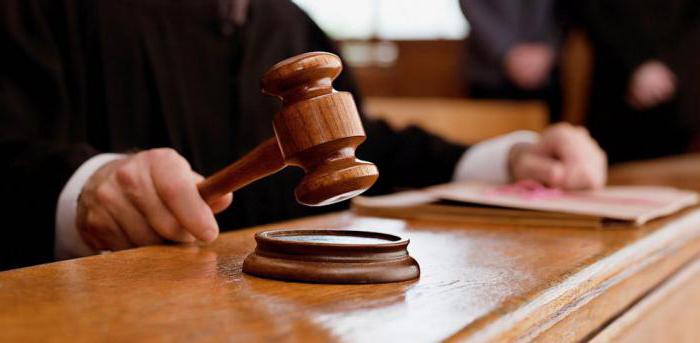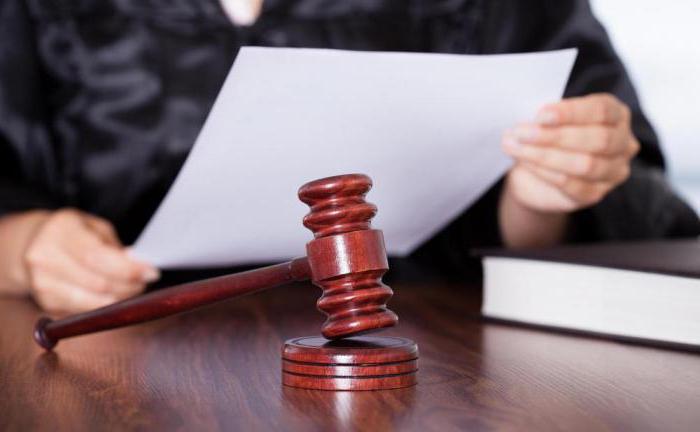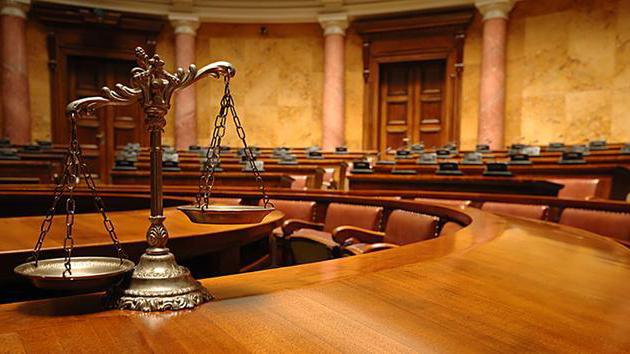An administrative offense is a concept that everyone can face. Perhaps it is at such a moment that he will need knowledge about what types of them are, who and how he draws up the protocol on the administrative decision, what his further role is. About it further.
General concept
What is an administrative offense? First of all, this is a certain action, which can also be expressed in a passive form. A subject that can be recognized as having committed one can be either a simple person, or an enterprise, institution or organization, which in legal practice is called a legal entity.
A prerequisite for an act to be recognized as an administrative offense is its unlawfulness and guilt - these concepts are more specifically disclosed in the legislation of the Russian Federation.
Among other things, when defining an act as an administrative offense, the object to which it is aimed should be clearly defined. In accordance with the concept that is given in the legislation, this can be property, human health, ecology, public order, morality, as well as some others.
Composition of an administrative offense
For an act to be recognized as an administrative offense, it must necessarily have a certain composition. There must be the subject himself - the person who commits the act, as well as the object - in relation to which the actions are directed. The subject of the offense may be public relations in any field.
In addition to the object and the subject, an administrative offense is shared by such concepts as the subjective and objective side. The first concept determines the presence of a complex of factors due to which a person or a legal entity can be held accountable (intent, purpose, guilt). As for the objective side, this concept determines the mandatory presence of a causal relationship between the act and the consequences that it entailed.
In order to bring an individual to administrative responsibility, there must be two factors: his sanity and his achievement of 16 years of age (in Russia).
Punishment
For any administrative act, the full list of which is prescribed in the Code of Administrative Offenses of the Russian Federation, a penalty is imposed, while it must be proportionate to the severity of the action or inaction. Examples of such can be deprivation of social law, administrative expulsion from the Russian Federation, disqualification, warning, compulsory work, and so on. Among all types, the best known to the public are fines, which are often faced by almost all representatives of the population of the country.
The law also states that, provided the offense is insignificant, a person can be released from punishment.
Any punishment may be followed solely on the basis of a protocol on an administrative offense.It is also indicated that it should be drawn up by an authorized person, as well as reviewed in the manner prescribed by applicable law.
So who decides on an administrative offense? What are their types? Who subsequently engages in their execution? About it further.
Who makes decisions on an administrative offense
The legislation in force in the Russian Federation clearly regulates the process of making decisions based on the results of consideration of cases of offenses of this type. So, the decision on an administrative offense (CAO RF) can be made by an official or body that is authorized to do so in accordance with the law. An example of such can be tax inspectors, traffic police officers, executive committee bodies and other persons who are involved in the object of the offense.
In the event that in the process it becomes clear that the criminal offense is not the administrative penalty, the case must be referred to the authorities authorized for criminal cases (for example, the prosecutor's office).
Types of Decisions
In legal practice, there are two types of acts of this kind. Anyone who makes a decision on an administrative offense shall essentially consider the whole essence of the matter and determine its nature. Based on the results of open information, this official is obliged to decide on the termination of proceedings in the case of an offense or on imposing an administrative penalty. When the decision is made and properly executed, it is subject to execution in the manner prescribed by law.
Execution
One of the main stages in the clerical work of this type is the execution of decisions on administrative offenses. This type of activity is carried out by special bodies of the state, the competence of which is the type of activity specified in the resolution.
So, for example, all decisions on cases of administrative offenses regarding the seizure of property or its confiscation should be implemented by the bailiffs service, for which a completed form of the established form should be formed and sent. In the event that the essence of the decision was the imposition of administrative arrest, then the implementation of such will be assigned to the internal affairs bodies. If we are talking about administrative expulsion from the territory of Russia, then in this case the decision is carried out by the migration service and so on.
Appeal against decisions
The one who makes the decision on an administrative offense is not the last resort in the process of legal proceedings on these issues. Any decision of an official can always be challenged in court, if all the instructions and terms presented in the law of the Russian Federation are correctly observed (Article 29.9 of the Code of Administrative Offenses).
In the event that it is necessary to challenge the decision of the body that issued the decision, it is necessary to attach a statement to the district court to its copy, in which it is necessary to request a review of the decision. The judicial authority is obliged to consider the request within 2 months from the date of filing - this is the period specified in the law. As regards the time limit for appealing against decisions on administrative offenses, it amounts to 10 calendar days. On the 11th day, the adopted and unappealed act enters into legal force.
Judicial review of a complaint
In the process of considering a complaint, all participants of the offense are invited to the courtroom, as well as the official who issued the decision on the administrative offense. In the course of the case, the whole essence of the act is clarified anew, the testimony of witnesses, if any, is heard, and the offender is given a speech.
In the event that one of the parties does not have the opportunity to appear at the hearing of the case, then it is obliged to notify the court about this. Also, any party has the right to use the services of private or state representatives - lawyers.
At the end of the case, the judge considering the complaint is obliged to determine the legality of the ruling on the administrative offense, its validity, and then, after hearing all the materials provided, make its decision, which will be final. Administrative offenses may also be reviewed. In the event that the complaint was examined in the court of first instance (city, district), the applicant has the right to submit an application for review of his decision to the appeals body. As regards the deadlines for appealing the decision on an administrative offense issued by the court of first instance, it is 20 days from the date of its signing.
In the Court of Appeal, the complaint must be considered in a collegial manner. Judges must make a general decision, which should be recorded in accordance with the law. If the applicant is not satisfied with the decision made by the court of appeal, he has the right to apply to the Supreme Body. Decisions of the Supreme Court on an administrative offense are not subject to dispute - they are immediately transferred to the bodies that are entrusted with their execution or the case is closed by its decision.

Types of court orders
As a result of the review of the complaint filed by the plaintiff, the court can take several types of decisions. What exactly it will depend on what materials will be provided by the parties at the time of consideration of the complaint.
Based on the results of the consideration of the case, the plaintiff may be denied the cancellation of the decision of the competent authority. This means that the decision on the offense in this case remains low and is subject to execution.
The court may also decide to amend the terms of the decision. In this case, the conditions of punishment may be relaxed for the plaintiff. The law provides that a change in conditions should not entail a deterioration in the condition of the applicant.
Another version of the court decision on this issue is the cancellation of the administrative offense order and the final cessation of proceedings in the current case. To make such a decision, the court only needs to consider the circumstances that entailed the imposition of the punishment, insufficient to recognize the act as an administrative offense.
Who has the right to appeal a court or official decision
The legislation contains a small list of persons who are entitled to submit an application for review and appeal of the decision. Firstly, such may be the person in respect of whom the proceedings are being conducted. Legal representatives and lawyers are also endowed with such rights on an equal basis with the offender.
In the event that the decision was made to the address of the legal entity, then an appeal against it can be submitted by an authorized body that is available at the enterprise, institution or organization.
List of documents required to file a complaint or protest
In order to challenge the decision made by the official body, it is necessary to file a corresponding application with the court and attach to it one certified copy of the disputed act. After that, copies of the complaint should be added to the package, the number of which should be equal to the number of participants in the process.
In the event that a legal entity or an individual acts through their representatives, you need to add to the package of papers a copy of the document on the basis of which the person carries out his activities (lawyer certificate, power of attorney for representation, etc.).If the decision is not reviewed for the first time, then copies of all decisions made by other bodies earlier must be attached.
When administrative penalties cannot be applied?
The law indicates several specific circumstances in the presence of which the punishment cannot be applied to a specific person. One of them is the expiration of the statute of limitations, which is set separately for each type of offense. An example of such circumstances can also be the repeal of the law on the basis of which a penalty was imposed or an amnesty act was issued under this article.
Also, the punishment does not apply if the guilty person acted in an emergency. The case of an administrative offense shall be closed if the person in respect of whom it was instituted is declared dead.
So, we examined in detail the issues that relate to administrative offenses and what is the ruling in the case of an administrative offense.